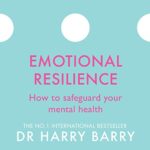How to be More Resilient
Being Resilient
Our capacity to recover quickly from stressful and difficult situations is called our resilience. It is our ability to “bounce back”, withstand tough and pressured situations or deal with adversity in general.
Life can be tough, everyone has setbacks in life and situations they would rather not deal with. It is important to be able to be resilient during these tough times so we can enjoy life to it’s fullest.
15 benefits of being resilient and 50 ways to be more resilient below.

15 Benefits of Being Resilient

Being resilient helps us to be able to bounce back when needed however there are also a number of other benefits that it can bring including;
- Can help to prevent mental health conditions such as anxiety and depression
- Be able to cope with stress
- Higher longevity
- Greater life satisfaction
- Have a sense of control over life
- Have a more positive outlook
- Inspire others to be more resilient
- Achieve more
- Lower absence from work or school
- Improved learning
- Improved sense of wellbeing
- Lowered potential risk taking
- Increased family involvement
- Better relationships
- Career success and progression
50 Ways to be More Resilient

50 simple tips to be more resilient below and plenty more in the further exploration section;
- Reframe the situation: How are you looking at the situation? Is there another, more positive angle that you can look it from? Are there any positives you can take? The mind is a funny thing and can give us all sorts of different viewpoints depending on our current emotional mood and state.
- Identify What You Can & Can’t Control: Do what you can about what you can control and understand & accept that you can’t control the rest (and let it go).
- Social Connection: Having strong bonds with family and friends helps to build our self confidence, ensures we know we have people to turn to when in need and in turn, builds our resilience.
- Meditate: See thoughts for what they are (just thoughts) and help to identify and clear the negative ones through meditation. Peaceful Soul guide to meditation here.
- Know Your Strengths: Give yourself the reassurance that you have strengths, you know what they are and can play to them.
- Know Your Weaknesses: Knowing our weaknesses can help to understand why we might find a particular situation or task difficult. If we have this knowledge up front, we can be less concerned about the difficulty we might face.
- Acceptance of Yourself: Truly accepting ourselves for the person we are means that it is very hard to knock us down as we know why react in the way we do to certain situations.
- Acceptance of Life & the Situation: Things happen. Accept that they have happened and may need time to fix but will be ok after time.
- Acceptance of Change: Change is the only constant in life. Understand that things will change. Learn to adapt and move on.
- Know Your Morals & Values: Knowing and understanding our morals and values helps us to determine the reason why we act we do and gives us something to fall back and judge situations when we face hardship.
- Have a Purpose: When you’re working towards something and you understand why, it’s very difficult to get knocked down.
- Have Fun: Having fun builds a positive self-image for us and helps to look at life in a light-hearted way. Go out and enjoy yourself to be more resilient.
- Practice Gratitude: Being grateful for the people and things we have in life helps foster positive emotion such as happiness and satisfaction which in turn helps build our emotional resilience. Peaceful Soul guide to gratitude here.
- Practice Positive Self-Talk: We are what we tell ourselves we are. Be positive and supportive in how you talk to yourself. Peaceful Soul guide to positive self-talk here
- Treat Yourself Well: Be your own best friend. Give yourself a pep talk when needed. And don’t put yourself down.
- Make Boundaries: Make and understand your boundaries with people, things and situations and stick to them.
- Learn to Say No: When you don’t want to do something say no. There are obvious situations where this doesn’t apply however there are many situations when we feel coerced into saying yes. Learn to and get comfortable with saying no.
- Get Knocked Down but Get Back Up Again: As Muhammad Ali famously said, “There is nothing wrong with getting knocked down, as long as you get right back up.”
- Look at the Positives: Pretty much every situation has a learning or a positive that can be taken from it. Find the positive.
- Understand It: If something has made you feel defeated, understand why that it is. Look at the causes and why you feel the way that you do. It’s not until we understand the why that we can look at how we can fix it.
- Act On Your Problems: Once you understand why, act on it. Write down the things that have knocked you down and how you can solve them in future. And act on it.
- Look After Yourself: Looking after yourself both mentally and physically is the one of the key ways to build resilience. Being fit in both mind and body prepares us for all of eventualities.
- Embrace the Stress: Stress gets a bad name however a little of it can be a good thing. It can motivate and drive us to complete things that we didn’t know or realise we can do. If it’s a light amount of stress, embrace it and use it to help drive you.
- Move from Global to Specific: Don’t treat incidents that they are indication of a catastrophic life, they are single incidents that happen to everyone. they do not reflect your entire life.
- Permanent to Temporary: View problems as single incidents that are temporary and you can (and will) get over.
- Internal to External Events: Take problems as things that happen to you, not things that things that you cause.
- Understand you are Not Your Thoughts: Thoughts are thoughts and do not define us as a person. Learn to observe your thoughts and weed out the negative ones.
- Try New Things: New things build up our experience, self-esteem and self-worth.
- Help Others: Helping others gives us a sense of self-worth and pride in ourselves. Peaceful Soul guide to helping others here.
- Sleep: Our perspective of a situation changes after we have had some rest. Get some sleep or rest and re-asses following.
- Be Brave Enough to Subject Yourself to Potential Failure: Another key to building resilience. Putting ourselves up against possible failure show us that more often than not, the fear is all in our mind. Go for it, what’s the worst thing that could happen?
- Experience & Maturity: As we grow we experience more situations, gain more experience and generally grow as a person. More experience mean we know and understand situations and generally means a higher amount of resilience.
- Avoid Drink & Drugs: They may help temporarily but generally make situations and negative thoughts & feeling worse in the long term.
- Write it Down: Keep a journal of your thoughts and feelings. This will help you to understand and be ready for future situations.
- Find the Meaning: Find the meaning in why something has happened.
- Keep Things in Perspective: The way you interpret the situation can have a large bearing on how you think about it. Chances are things are not as catastrophic as you think or feel.
- Learn From Past Experiences: Past Experiences can help us to navigate the present and future. They can also have a bearing on how and why we react to certain situations in a given way. Learn from your past and why you behave the way that you do. Peaceful Soul guide to Past Experiences here.
- Find the Learning: When things don’t go our way, there is often a learning that can be taken. If a relationship breaks down, it can help us see what we want in a future relationship. If we don’t get a job or promotion, it can show us that we weren’t right for that particular opportunity or even need to go a different route in life. And so on. There is always a learning.
- You’ve Already Been Through A Lot: Everyone has been through ups and downs in life. Remember that you have come through things before and you will do again.
- Look Forward: Don’t dwell on the past, it’s done and there’s nothing that can be about it. Focus on the present and the future.
- Accept (Constructive) Criticism: No one is perfect and constructive criticism can help us grow as a person. Listen to and evaluate it. If you feel it is of no use, discard it.
- Look At What You Have Achieved: You will have achieved a lot in life. Take confidence from the things that you have done. Build on your past successes.
- Admit Your Mistakes: Everyone makes mistakes, be prepared to admit them when you make them. You will have less to fear.
- Only Apologise When You Need to: Don’t apologise for everything, just apologise when you need to and let it go.
- Stick Up For Yourself: If you have genuine reason to (and it is safe to do so) stick up for yourself. Don’t let people walk all over you.
- Don’t Label Things as “Bad” or “Good”: Focus more on the process than the outcome
- Anything is Possible: Don’t put limitations on yourself or your life. Anything is possible so dream and act on it.
- Relax: Take time to unwind and relax. If we are always in a heightened sense of being, then it is easier for emotion to run wild and for us to be overwhelmed in situations. Take it easy and relax to bring things down a level. Peaceful Soul guide on how to relax here.
- Be Optimistic: Have a positive yet realistic view of the world.
- Get Help: If you are really struggling with coping with various situations and feel constantly knocked down, get help. Depending on the severity, it could be a chat with friends or family or even a counsellor or therapist if you feel really concerned.
Further Exploration - Articles & Media

Wiki: Psychological resilience
Wikipedia article explaining psychological resilience including the background, history, process, biological models, related factors, building, studies, cross-cultural factors and criticism.

Article: The benefits of resilience
Positive Psychlopedia article looking at various benefits around resilience including; the benefits of going through trauma, benefits finding, tend-and-befriend, post traumatic growth, stress and positive stress mindset.

Book: Emotional Resilience: How to safeguard your mental health
Book from Dr. Harry Barr's revealing how you can unlock your inner emotional resilience reserves, deal with the challenges of life, and protect your mental health. Dr. Barry covers the 3 key areas of; personal skills, social skills and life skills.
***This is one of the few affiliate links on Peaceful Soul***

Article: 12 Reasons For Developing Greater Emotional Resilience
Better Help article looking at what resilience is and 12 benefits of emotional resilience including reduced depression and higher community involvement.

Forum: What are the practical steps to increasing resilience?
Quora forum discussing how to increase resilience with over 200 answers including being able to accept what has happened in your life, believing the universe is friendly and being mindful.

Article: Building your resilience
Article from the American Psychological Association looking at what resilience is, what resilience isn't and 4 areas to work on to build resilience; building connections, fostering wellness, finding purpose and embracing healthy thoughts.

Video: The three secrets of resilient people
Tedx talk on Youtube by Dr. Lucy Horn discussing the three secrets of resilient people including; resilient people get that sh*t happens and tuning into the good.

Article: How to Overcome Obstacles in Your Life: Resilience
10 tips to help you become more resilient from WebMD including taking action, learning lessons and releasing tension.

Article: What is Resilience and Why is It Important to Bounce Back?
A thorough guide to resilience from Positive Psychology. Looking at what resilience is, the psychology of mental strength, why being resilient is so important, growing mentally strong as a person, quotes on resilience and a take-home message.
Further Mental Wellbeing Guides from Peaceful Soul

Mind Guides
Click here for the latest guides to enhance mental wellbeing
